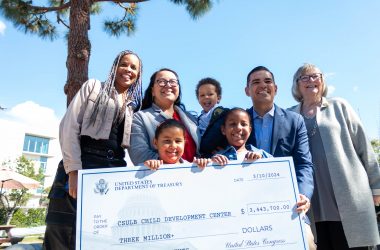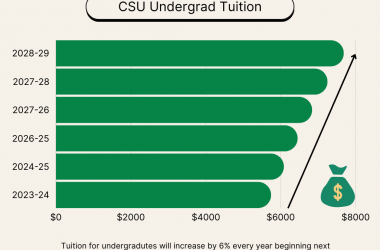An executive order by the Cal State University chancellor requiring more administrative oversight has made it difficult for one branch of the student government to find things to do.
Chancellor Charles B. Reed’s executive order 969 established that student organizations must have staff advisors, and rules state that club advisement is not an appropriate function for auxiliary organizations like Associated Students, Inc.
The order effectively nullified part of the ASI bylaws that states that the judiciary has authority to take disciplinary action against organizations chartered by ASI.
Although it isn’t used, the bylaw stands because it can only be amended by a two-thirds vote by the students, ASI President James Ahumada said.
The justices receive a $200 per semester stipend, which goes into their on-campus academic account, Ahumada said. They are appointed by the president and confirmed by the senate.
Modeled after the U.S. government, ASI’s student government is divided into executive, legislative and judicial branches.
Before the 2005 change, the judicial branch would regularly hear cases from student organizations like clubs and fraternities. If the organization had an internal debate, the justices would interpret the group’s bylaws and come to a verdict. That type of work made up a large amount of the branch’s work, Ahumada said.
Some of the past case decisions can be viewed at the ASI website, dating back to the 1960s.
The dean of students now performs the oversight function, which may make it less likely for students to ask for help with internal problems, according to Ahumada.
Chief Justice Jeff Yutrzenka said he also thinks that students were more likely to seek help with problems when they knew they would be judged by their peers.
“Now more organizations would let the problem be dealt with in-house,” Yutrzenka said. “I don’t know if the organization would want to get in more trouble than they might think they’re already in, having to go to the dean of students. I think it should be more peer review, but it’s out of our hands now.”
Ahumada said that ASI has struggled to find things for the justices to do since the change.
“After the change it’s been tough for us to figure out how exactly to have the justices operate,” Ahumada said. “But the best way we’ve found is to have them sitting on university committees, like the academic integrity committee.”
Ahumada said the justices sit as student representatives for various campus committees, providing perspective on cases. In addition, the justices review the actions and documents of ASI when an issue arises.
They have recently worked on additional projects like an undergraduate law review and bringing a lawyer to campus once a month to provide students with free legal advice.
“We’re not really too expansive here, we’re just here for checks and balances,” Yutrzenka said. “We’re like an umpire in a baseball game, we try to make sure everyone plays by the rules.”
Disclaimer: The Daily 49er is not responsible for Postings made on www.daily49er.wpengine.com. Persons commenting are solely responsible for Postings made on this website. Persons commenting agree to the Terms of Use of the website. If Postings do not abide by the Rules of Conduct or Posting Regulations as listed in the Postings Policy, the Daily 49er has all rights to delete Postings as it deems necessary. The Daily 49er strongly advises individuals to not abuse their First Amendment rights, and to avoid language suggestive of hate speech. This site also encourages users to make Postings relevant to the article or other Postings.



